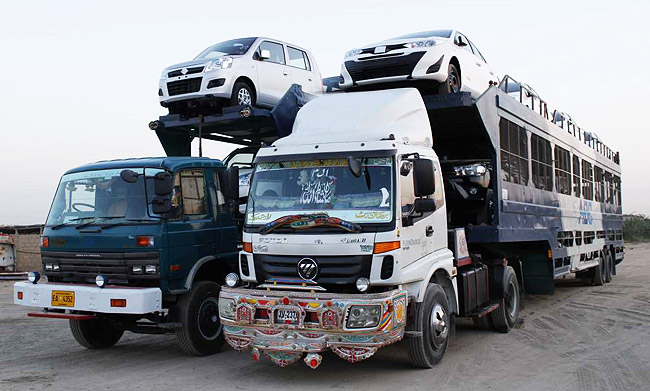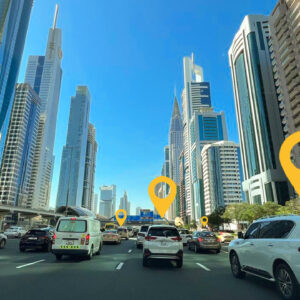
Heavy vehicle transport in Dubai plays a vital role in supporting the emirate’s infrastructure, construction, logistics, and trade sectors. From construction materials to industrial equipment, heavy transport ensures the smooth movement of large loads across the city and beyond. This guide provides an overview of how heavy vehicle transport in Dubai, the regulations involved, and the best practices for ensuring safety and efficiency.
Importance of Heavy Vehicle Transport in Dubai
Supporting Infrastructure and Trade
Dubai’s continuous development depends on efficient transport systems. Heavy vehicles are responsible for moving raw materials such as steel, cement, and machinery used in large-scale infrastructure projects. The logistics network ensures timely deliveries to construction sites, manufacturing units, and ports.
Boosting Economic Growth
Heavy transport services also support trade through Dubai’s major ports like Jebel Ali Port. These vehicles help connect import and export goods, maintaining the emirate’s position as a global logistics hub. The efficiency of these operations directly impacts economic productivity.
Facilitating Construction and Industrial Sectors
Dubai’s skyline is constantly evolving, and heavy vehicles play a major role in this transformation. They are essential for moving construction materials, cranes, and prefabricated structures. Without reliable heavy transport, project timelines could face serious delays.
Regulations and Licensing for Heavy Vehicle Transport
Transport Authority Oversight
In Dubai, the Roads and Transport Authority (RTA) regulates all forms of vehicle movement, including heavy vehicle transport. The RTA ensures compliance with safety standards, driver qualifications, and vehicle maintenance requirements.
Vehicle Registration and Permits
Every heavy vehicle operating in Dubai must be registered with the RTA. Depending on the vehicle type and its purpose, operators may need special permits for oversized or overweight loads. Permits are often route-specific to ensure road safety and infrastructure protection.
Driver Training and Licensing
Heavy vehicle drivers must hold a valid commercial driving license specific to the vehicle’s weight category. Training programs emphasize safe driving techniques, defensive driving, and awareness of road regulations specific to heavy transport operations.
Types of Heavy Vehicle Transport in Dubai
Construction Transport Vehicles
These include dump trucks, cement mixers, and heavy loaders. They are primarily used to move raw materials and debris to and from construction sites.
Industrial and Machinery Transport
Flatbed trailers and low-bed trucks are used to move large machinery, industrial components, and equipment. These vehicles handle heavy loads that require specialized handling and loading procedures.
Freight and Logistics Vehicles
Long-haul trucks and container carriers are used for transporting goods between warehouses, ports, and distribution centers. These vehicles form a crucial part of Dubai’s logistics and trade infrastructure.
Challenges Faced in Heavy Vehicle Transport
Traffic Management and Congestion
Dubai’s roads are modern, but traffic congestion can create delays, especially in industrial areas and near ports. Heavy vehicle operators must plan routes strategically to avoid peak traffic hours.
Road Safety and Maintenance
Due to their size and weight, heavy vehicles require regular maintenance to ensure safe operation. Poorly maintained vehicles can lead to accidents or breakdowns, causing road blockages.
Compliance and Fines
Strict regulations are enforced to ensure safety and environmental standards. Violations, such as overloading or operating without the required permit, can lead to heavy fines or temporary vehicle bans.
Safety Measures and Best Practices
Load Securing and Weight Distribution
Ensuring that cargo is properly secured prevents accidents and damage during transit. Weight distribution across the vehicle also improves stability and control.
Regular Vehicle Inspections
Routine inspections and preventive maintenance are mandatory for heavy vehicles in Dubai. These checks reduce the risk of breakdowns and extend the vehicle’s lifespan.
Driver Fatigue Management
Driver fatigue is a leading cause of road incidents involving heavy vehicles. Transport companies often schedule rest breaks and shift rotations to ensure drivers remain alert during long hauls.
Future of Heavy Vehicle Transport in Dubai
Smart Transportation Systems
Dubai is integrating smart transport technology to enhance road safety and logistics efficiency. Real-time tracking and automated route planning systems are helping companies optimize delivery schedules and reduce fuel consumption.
Environmental Initiatives
Sustainability is becoming a priority in heavy transport. The introduction of hybrid and electric heavy vehicles is expected to reduce carbon emissions, aligning with Dubai’s green mobility goals.
Infrastructure Expansion
With new industrial zones and logistics hubs under development, Dubai continues to expand its transport infrastructure. This expansion ensures that heavy vehicle transport remains efficient and capable of supporting the city’s rapid growth.
Choosing Reliable Heavy Vehicle Transport Services
Assessing Capability and Fleet
Businesses in Dubai should choose transport providers with experience handling specific cargo types. A diverse and well-maintained fleet ensures reliability and compliance with RTA standards.
Insurance and Safety Records
A strong safety record and valid insurance coverage are essential when selecting a transport partner. These factors protect goods in transit and reduce operational risks.
Understanding Delivery Routes and Timelines
Planning routes and delivery schedules in advance helps avoid delays. Many operators use GPS-based tracking to provide real-time updates on cargo movement.
Conclusion
Heavy vehicle transport in Dubai is the backbone of the city’s industrial and commercial growth. With robust regulations, advanced infrastructure, and a focus on innovation, Dubai continues to set benchmarks in logistics efficiency. As technology and sustainability reshape the transport sector, heavy vehicles will remain integral to supporting the city’s future expansion and economic strength.




